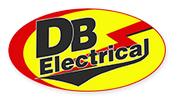Consumers may want to look at the last of Ford and GM sedans
If you like the feel and ride of a sedan, you might wonder if you should buy one in light of recent news. Ford has announced it will discontinue the Fiesta, Focus, Fusion and Taurus, essentially exiting the sedan market. GM joined the parade with an announcement that it would end production of the Chevrolet Cruse, Volt and Impala; Cadillac CT6 and XTS and Buick LaCrosse. If you prefer sedans, you might think you should get one before they’re all gone. Plus, discontinued models often come with price cuts. But then there’s the other thought: How will you get replacement parts to maintain the car?
Pros and Cons of Buying Discontinued Models
Whether you should buy one of these discontinued sedan models depends on your answer to a question: Do you plan to trade the car in a few years or keep it long term? If you’re the type of person who trades every few years, it might be a poor investment. Most discontinued models historically lose value as used cars. But if you’re the type of person who keeps vehicles for many years, resale value is less relevant. A long-term vehicle owner is more interested in service life, and a discontinued model can provide years of reliable service.
Where to Get Automotive Replacement Parts
But that brings you back to the question: Will you be able to get replacement parts? The answer is a wholehearted YES! It’s true that original equipment manufacturers (OEMs) have been known to back away from manufacturing parts for discontinued models, but there’s another industry known as aftermarket manufacturers. DB Electrical is a leading aftermarket parts supplier.
DB Electrical keeps vehicles of many types on the road, trails, fields and waters long after the date they were manufactured. People who own older vehicles rely on DB Electrical for parts that are hard to find elsewhere. To demonstrate the depth of inventory available from DB Electrical, you can still get an alternator for an AMC Ambassador, Matador or Gremlin, which are cars from a bygone era. You can also get starters for Oldsmobile, Plymouth and Mercury, brands which disappeared from new car dealerships years ago. It doesn’t matter that these makes and models are no longer manufactured. If you own one, you can keep it operational on the road thanks to aftermarket parts.
How Aftermarket Parts Meet Performance and Fit Standards
You might wonder: How does an aftermarket company design parts for vehicles? It’s done through a process called reverse engineering. The original part is studied in detail by engineers who determine how it was built. While taking the original product apart, they study its design and the materials used. The goal, at the very least, is to replicate it exactly to what the original manufacturer made. But in that process, if the engineers see a way to actually improve the product, they will do so. Consequently, some aftermarket products are made better than the original part that came in the vehicle.
Bottom Line: Buy It if You Like It
When you ask whether you should buy a discontinued car model or not, you simply need to ask yourself if you like the car. If the answer is “yes,” go ahead and buy it. You can rest assured there will be replacement parts to keep it fully operational for years to come. The aftermarkets parts business will make sure of it.


